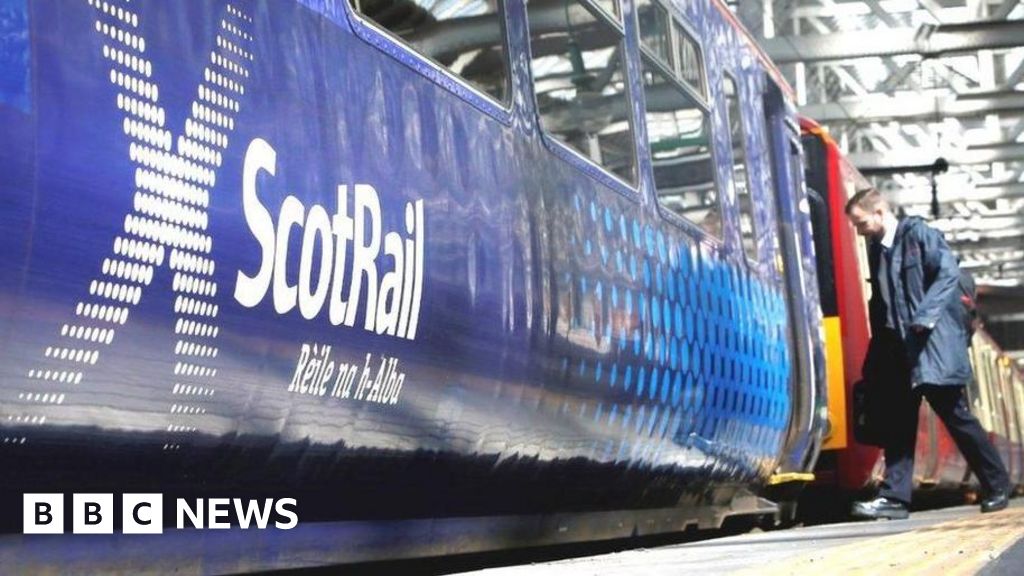ScotRail travel misery over double disruption to Sunday trains - 4 minutes read

ScotRail travel misery over double disruption to trains
ScotRail passengers are facing double disruption to Sunday travel, as engineering work takes place while trains have already been cut back in a pay dispute.
Several routes out of Glasgow Queen Street are affected - including Cumbernauld, Edinburgh, Aberdeen, Inverness, Oban and Fort William.
ScotRail apologised to travellers and said some trains would be diverted and buses would replace others on parts of the network.
A reduced timetable is already in place - with only about 50% of services running on Sundays after drivers declined to work overtime in a row over pay.
Routes affected
ScotRail advised passengers to allow extra time for travel and check their journey times on the mobile app.
Service delivery director Mark Ilderton said: "We're sorry for the inconvenience this may cause to customers who have their journey impacted by service alterations.
"We know how frustrating this can be and thank them for their patience."
Mr Ilderton added that ScotRail was "fully committed" to further discussion with unions in the driver dispute over pay.
The train operator faced criticism from many passengers on social media, who called the cancellations "ridiculous" and branded the situation "a shambles".
The publicly-owned rail firm cut 600 services and introduced an emergency timetable after four unions turned down a pay offer earlier this month.
Aslef, Unite, RMT and TSSA have rejected the three-year deal backdated from April this year until 2027 which would see workers receive a 2% rise each April and a 1% increase the following January.
Drivers' union Aslef is balloting ScotRail staff over industrial action.
Aslef Scottish organiser Kevin Lindsay said the union would return to negotiations and described the reduced timetable in operation as "an act of economic vandalism".
He said: "It has not only inconvenienced passengers but also significantly impacted Scotland's economy."
Fair settlement
The train cutbacks have already affected travel to major events in July like the Open golf tournament and the TRNSMT music festival
Transport Scotland said it acknowledged the desire of rail unions to negotiate a fair settlement for their members
A spokesperson added: "Train planning and staff rotas are operational matters for ScotRail.
"However, we fully expect any timetable to give the best reliability and availability for passengers and that changes are communicated well in advance to enable effective journey planning."
Rail passengers are suffering from an unusual conflagration of problems this weekend. The emergency timetable was introduced by Scotrail three weeks ago because of a shortage of drivers available to work on rest days.
The problem has been compounded this weekend by planned engineering work with replacement bus services.
Another factor is that although the emergency timetable was brought in to try to reduce short-notice cancellations, it has not eliminated them completely.
For instance, on Sunday morning a train from Glasgow to Inverness was cancelled. Passengers faced a lengthy wait for the next available service.
Two major rail unions – the RMT and ASLEF – are balloting members at ScotRail over industrial action on pay - which could potentially lead to strikes and far worse disruption.
Scotrail, which was brought back into public ownership two years ago, argues it cannot improve its pay offer without agreement at a senior level within the Scottish government.
Public ownership means Scotrail now faces a greater level of scrutiny and public accountability.
But it also means the buck stops with the Scottish government - which could face tough questions if the current disruption continues or escalates.
Source: BBC News
Powered by NewsAPI.org